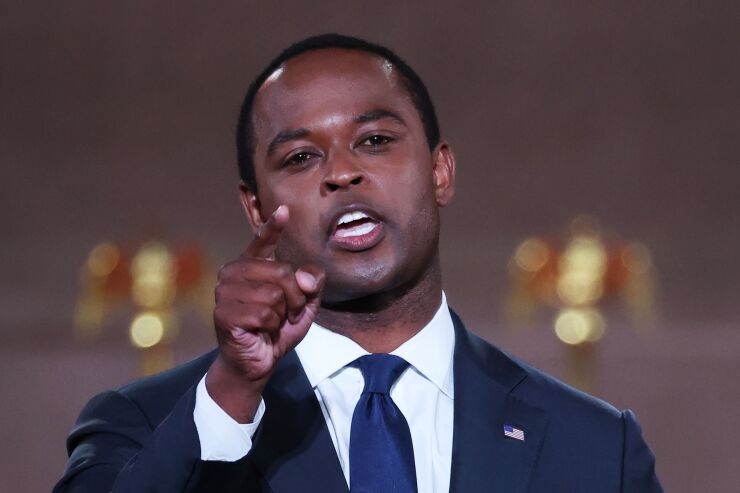On election night, Rep. Patrick McHenry, R-N.C. — who's expected to be the next chair of the House Financial Services Committee —
McHenry is not alone in that assertion. State legislatures all over the country have been
The emergence of those policies has been gradual but persistent over the last five years, beginning perhaps with

Every trend needs a backlash, and Republicans in Washington have been all too happy to oblige. Former Senate Banking Committee Chair Mike Crapo, R-Idaho, called on the biggest banks to continue to serve "
Is ESG sound corporate policy? I don't really care. I think fossil fuels will end up costing more than renewable energy and the ability of renewable energy to comprehensively replace fossil fuels is probably inevitable. A lot of bankers who are thinking about where to invest or direct their financing efforts might feel the same way. If a bank wants to cut ties with gun manufacturers as a matter of policy, I have no doubt that those manufacturers will find someone to lend them money on acceptable terms.
But while I'm agnostic about the efficacy of ESG to meaningfully advance desired social change, I'm not as agnostic about whether enacting anti-ESG policy would be harmful for banks and society at large. It would be, and its consequences fly in the face of the kinds of small-c conservative principles that Republicans supposedly espouse.
The fundamental job of a bank is to take deposits and make loans, and there are risks on either side of that ledger. Since the advent of deposit insurance, the risk on the deposit side of the ledger, at least from the customer's perspective, has been eliminated, and the result of that change is that there is little difference from one bank to the next — checking and savings pretty much work the same from bank to bank. Yes, deposits are "
That isn't necessarily the same for states, pension funds and other state-controlled money pots; if one's state chooses not to do business with a bank or firm that is eminently qualified to handle that government's inflows, outflows and credit needs because of its ESG policy, there may not be another bank equally qualified waiting in the wings to take on the business. Taxpayers may be getting worse or more expensive service for fundamentally political reasons — precisely the kind of motivation that the anti-ESG movement wants to prevent.

As for lending risk, this is in the eye of the beholder. Efficient markets work when someone sees something and makes a move before everyone else does — and that applies for downside risks as much as it does for upside potential. If a bank decides that the reputational risk — a notoriously subjective question — outweighs the financial benefit of funding a pipeline or a gun store or a puppy mill, that's its call to make. And maybe it will be right, maybe it will be wrong. But so long as lenders are not discriminating against a protected class of individuals and are consistent in their policy, that's their choice.
That is sound regulatory policy as well, if for no other reason than because the alternative would be highly problematic. Former acting Comptroller of the Currency Brian Brooks articulated such an alternative in his last days in office,
Efficient markets are about choices — choices for customers, lawmakers, lenders and borrowers. If fossil-fuel companies think they will be around forever and climate change isn't real, I have no doubt they'll be able to find lenders they can persuade to their point of view. If a bank thinks solar is the wave of the future or there are far too few guns in the United States, it is free to pursue that strategy — and someone will. But while fighting the woke mob may be good politics — and I have no doubt that, for some segments of the electorate, it is — it's a backward policy.





